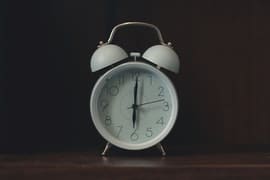It’s not safe to use alcohol and Nyquil together, but why not? Get the answers on this page.
Most cough and cold medicines are over-the-counter drugs designed to treat cold symptoms. However, some people — especially teens — use cough and cold medicines to get high. This use can be risky enough on its own, but mixing Nyquil with other substances, including alcohol, can be dangerous. It’s important to know, and weigh, the risks of drinking alcohol along with Nyquil.
Article at a Glance:
Remember these important points when considering drinking or taking Nyquil:
- Cough and cold medicines like Nyquil are often used as directed to help relieve colds. However, they are sometimes used by people — especially teens — trying to get high
- It is not safe to combine cough and cold medicines like Nyquil with alcohol
- Drug interactions that alcohol has with common cough and cold medicine ingredients may occur when mixing alcohol and Nyquil
- It is best to skip alcohol when taking cough or cold medicines
What Is Nyquil?
Nyquil is a brand-name medication that is available over the counter. When you have a bad cough or cold, the active ingredients in Nyquil are meant to remedy sleep issues.
It contains several different drugs under the Nyquil brand name. There are several different kinds of Nyquil, and they all contain different drugs in varying amounts. However, Nyquil usually contains some combination of:
- Acetaminophen, a pain reliever also found in Tylenol
- Dextromethorphan (also known as DXM), a cough suppressant
- Doxylamine, an antihistamine which can be used to soothe allergies or sleep issues
Some Nyquil also contains alcohol. Nyquil Cold and Flu Nighttime Relief Liquid contains 10 percent alcohol by volume.
Can You Mix Alcohol and Nyquil?
It’s not a good idea to mix alcohol and Nyquil. Because alcohol interacts with many drugs, and because Nyquil contains several drugs, if you take them together, you are at high risk of experiencing drug interactions. It is not recommended to drink alcohol when you are using Nyquil, especially if you’re taking Nyquil Liquid, which already contains some alcohol.
Nyquil contains acetaminophen and doxylamine, and both react badly with alcohol. The two most significant drug interactions between Nyquil and alcohol are:
- Alcohol and acetaminophen: Acetaminophen can harm your liver if you take too much. Taking acetaminophen with alcohol — even if you take lower doses — can cause severe liver damage.
- Alcohol and doxylamine: Doxylamine is a central nervous system depressant. It can make you extremely sleepy. When you take it with alcohol, side effects are worse.
Alcohol and Nyquil Side Effects
Alcohol and Nyquil have many side effects in common. The side effects may be even more intense if you take them together because of the drug interactions between alcohol and Nyquil.
Common side effects of alcohol and Nyquil include:
- Extreme drowsiness
- Dizziness
- Confusion
- Loss of coordination
- Impaired judgment
- Increased risk of alcohol addiction
Some of the drugs in Nyquil have side effects of their own which can be worse when you drink alcohol. For example, in high doses, DXM can cause hallucinations, which is one of the reasons why DXM is abused, as the effect is similar to being high on ketamine or LSD.
Alcohol and Nyquil Addiction
If you drink in excess regularly (more than one drink a day for a woman and more than two drinks a day for a man) are at risk for alcohol abuse and addiction. Alcohol addiction is a big problem in America, and mixing Nyquil and alcohol only contributes to this issue.
However, cough and cold medicine like Nyquil can be addictive too, and not only because Nyquil may contain alcohol. In high doses, some of the ingredients in Nyquil, like DXM, can affect the reward center of the brain, giving you a sense of pleasure and increasing your risk of dependence and addiction.
The problem of cough and cold medicine abuse among teens has become so significant that Arizona, California, Kentucky, Louisiana, New York, Virginia, and Washington have now banned the sale of DXM to people under 18 years old.
Because misuse of cough and cold medications like Nyquil is a relatively new development, the long-term effects of Nyquil abuse are not known. The long-term effects of alcohol abuse are very well known, however. Long-term alcohol addiction can damage your brain, heart, liver, pancreas and immune system, and alcohol use can even cause cancer.
If you or a loved one struggle with alcohol or cough medicine addiction, trained professionals at The Recovery Village can help. The Recovery Village offers many different treatment options to help you overcome addiction.Reach out to us today for more information.
Articles Related to Alcoholism

Alcohol detox isn’t easy and not everyone can do it on their own. That is why alcohol detox and alcohol withdrawal treatment is administered by medical professionals.

Alcoholism takes many forms, and the stereotype doesn’t always hold true. So when do a few drinks with friends become a full-blown alcohol addiction? How do you know if you are an alcoholic?

While cirrhosis scars from excessive drinking are irreversible, quitting alcohol and leading a healthier lifestyle can help your liver heal from alcohol-related liver disease.

When detoxing, hydration is key. However, certain food groups also have benefits when it comes to helping with the discomfort of withdrawal symptoms and detoxification.

Detox from alcohol can begin within hours. Typically, alcohol withdrawal symptoms happen for heavier drinkers. Alcohol withdrawal can begin within hours of ending a drinking session.

Daily drinking can have serious consequences for a person’s health, both in the short- and long-term. Many of the effects of drinking every day can be reversed through early intervention.


Vicks. “Vicks Nyquil FAQ.” (n.d.) Accessed March 30, 2019.
National Institute on Drug Abuse for Teens. “Cough and Cold Medicine.” Updated March 2019. Accessed March 30, 2019.
National Institute on Alcohol Abuse and Alcoholism. “Alcohol’s Effects on the Body.” (n.d.) Accessed March 30, 2019.
The Recovery Village aims to improve the quality of life for people struggling with substance use or mental health disorder with fact-based content about the nature of behavioral health conditions, treatment options and their related outcomes. We publish material that is researched, cited, edited and reviewed by licensed medical professionals. The information we provide is not intended to be a substitute for professional medical advice, diagnosis or treatment. It should not be used in place of the advice of your physician or other qualified healthcare providers.